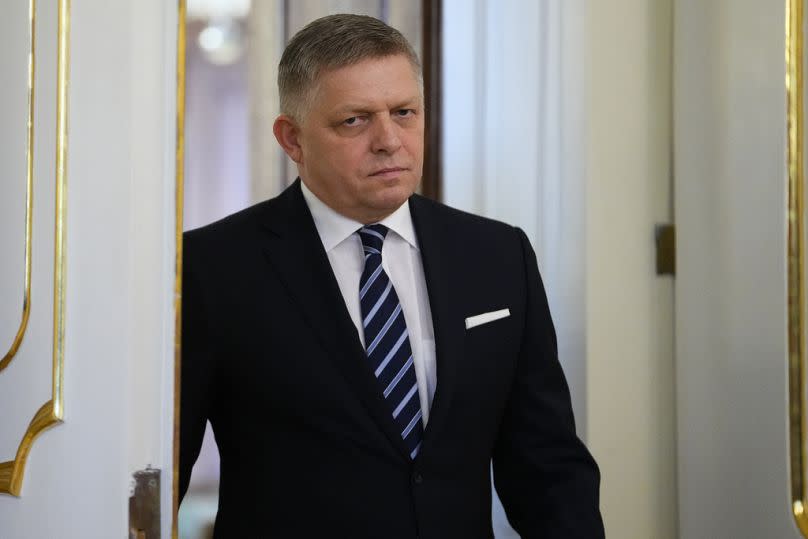Widespread protests in Slovakia continue against proposed penal code changes

- Oops!Something went wrong.Please try again later.
The prospective changes, which will require parliamentary and presidential approval before becoming law, include a proposal to abolish the special prosecutor’s office, which handles serious crimes such as graft, organised crime and extremism.
According to the plans, from mid-January these cases would be taken over by prosecutors in regional offices, which haven’t dealt with such crimes for 20 years.
Michal Simecka, leader of Slovakia’s opposition liberal party, said the changes “would result in an amnesty for mafia and corrupt people.”
“We have to show them that we’ll defend justice,” he added.
The European Commission has called for "thorough and in-depth analysis" of the reform which, by its very nature, "is far-reaching and touches on a lot of EU law".
Reports from local media confirmed on Monday that the coalition government of left-wing populists and ultranationalists had postponed plans to introduce the controversial changes by emergency procedure before Christmas, the timeline shifting instead to the new year.
But the delay didn’t stop protestors turning out in force on Tuesday, an estimated 15,000 people demonstrating in the country’s capital, Bratislava, where crowds were heard repeatedly chanting: "We’ve had enough of Fico.”

Since Fico’s government came to power earlier this year, some elite investigators and police officials who deal with top corruption cases have been dismissed or furloughed.
The special prosecutor’s office which the government proposes to abolish is currently handling several major corruption cases involving politicians from Fico's Smer party, such as former police chief Tibor Gaspar and deputy speaker of parliament Peter Ziga, as well as central bank governor Peter Kazimir and the former head of the intelligence services.
The planned changes in the legal system also include a reduction in punishments for corruption.
Fico returned to power for a fourth time in September, after his leftist party won Slovakia’s parliamentary election on a pro-Russia and anti-American platform.
His critics worry that his return could lead Slovakia to abandon its pro-Western course and instead follow the direction of Hungary under Viktor Orbán.
The protests have been gaining momentum since 7 December, when people first took to the streets of Bratislava.
Organisers said on Tuesday that rallies took place in Kosice, Presov, Poprad, Banska Bystrica, Zilina, Nitra, Trnava, Trencin, Spisska Nova Ves, Liptovsky Mikulas and Povazska Bystrica.

